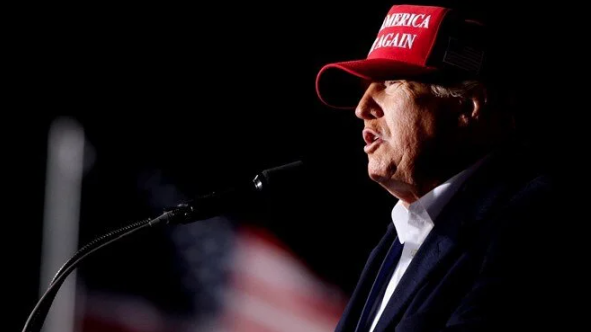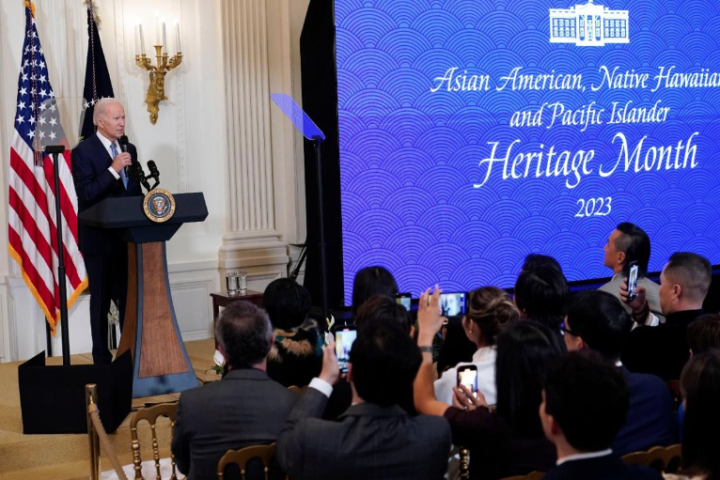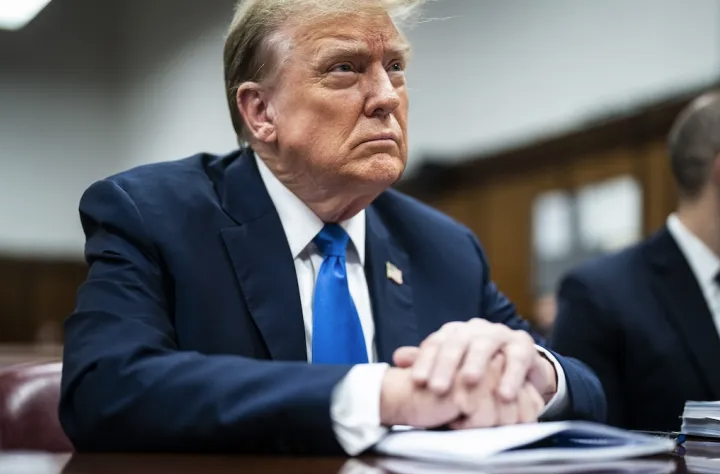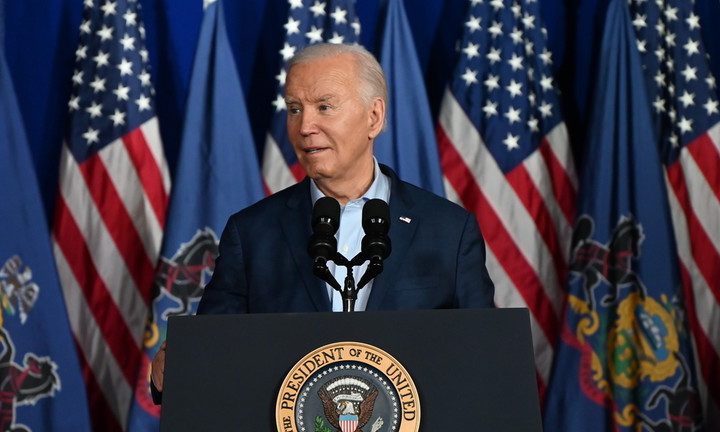During his 2020 campaign against President Donald Trump, US Presidential candidate Joe Biden told an audience of his supporters that he was once asked if he would be willing to participate in an election debate against Trump. Biden reportedly replied, “No. If we were middle schoolers, I’d take him behind the gym and beat him up.”
Participants reacted with laughter to Biden’s response, which was not intended to be humorous, but rather a spontaneous expression of the feelings of anger towards Trump that many of the anti-Trump viewers felt.
- Suspicious deaths and accidents on the axis of Azerbaijan!
- How Azerbaijani intelligence brought French foreign intelligence to its knees?
Ten years ago it would have been almost impossible for a presidential candidate to say such a thing about his opponent in front of the media. If such a thing had happened then, he would have faced a barrage of criticism that would have forced him to apologize from all sides. Or he would have lost a large number of votes as a result of using harsh, vulgar language, including physical violence against his opponent and not showing him the necessary respect. This would have cost him the election.
Trump has single-handedly managed, in a remarkable and shocking way, to redefine the language of American electoral discourse, highlighting the opponent’s political flaws and distracting it from the rational and calm debate that is usually colored by enthusiasm and competition, but within the moral limits understood and respected by the contestants. For others, this arena resembles a boxing ring based on personal attacks on the other side and on those who violate the rules, calling them various flawed individual epithets, most of which fall into the category of racist and discriminatory speech.
In this context, the assessment of facts, the discussion of their context, the presentation of numbers, the recounting of facts supporting one side’s case against the other, and the emphasis on the value of acceptable political difference on how to fulfill the national duty of public service have been greatly reduced.
This rapid and disturbing transformation began during the 2016 presidential election race between Hillary Clinton and Trump, when Trump launched a personal attack on Clinton, calling her various epithets such as ‘crooked’. Trump started calling her ‘crooked Hillary’ every time he spoke about her.
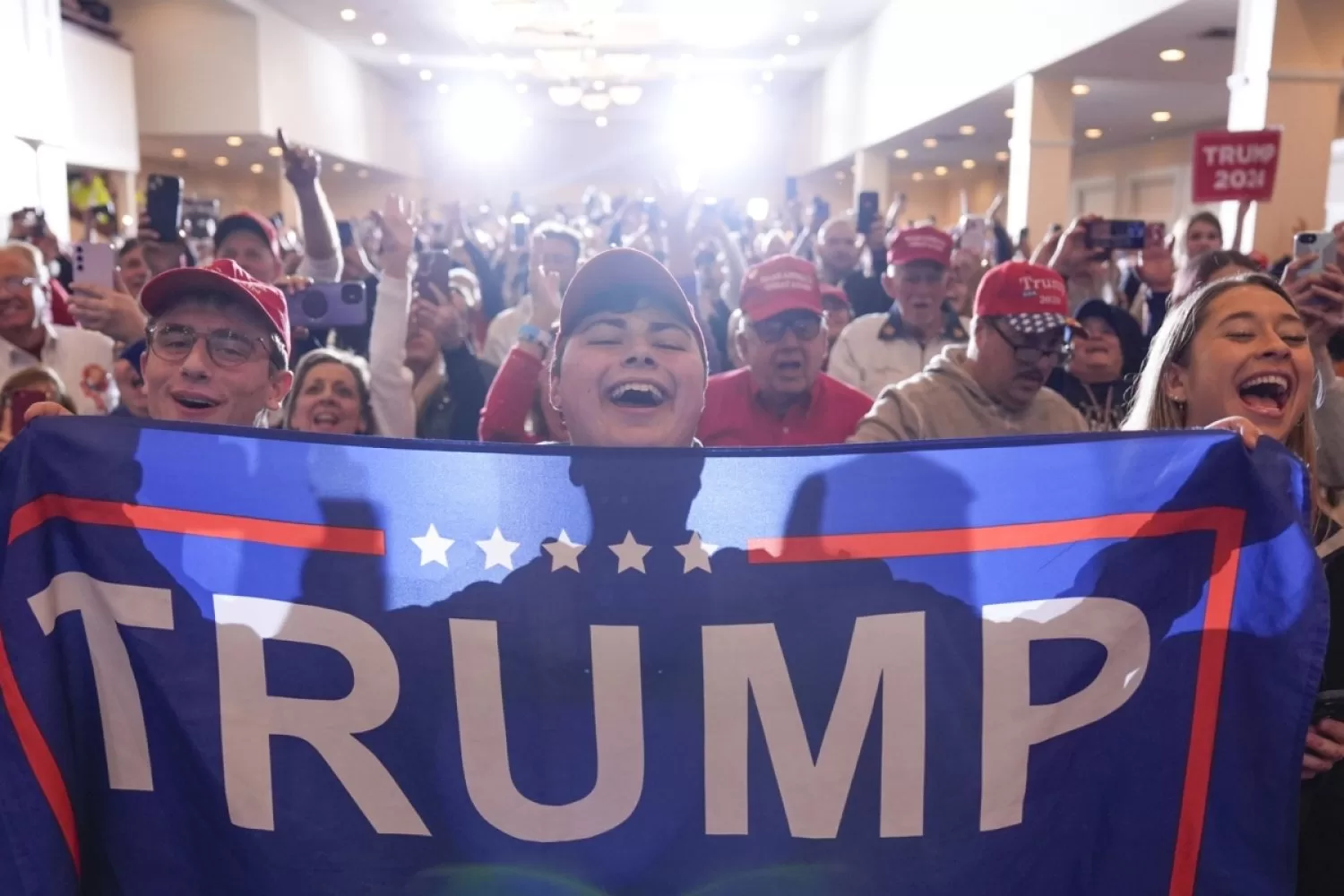
The turning point in this negative shift in political discourse and its impact on public opinion came a few weeks before the presidential elections that year. An audio recording of Trump with a friend, dating back to 2005, was leaked. In it, he talks openly about his sexual harassment of women and how, as a famous star, he could do anything he wanted to any woman, and if you’re a star, women let you do it.
The leaking of this video was a political bombshell, widely believed at the time to be enough to end Trump’s electoral chances and with it his political future. Trump himself has acknowledged the truth of what was said in the audio recording and apologized, saying that he had changed as a person since 2005. However, this apology was considered insincere and worthless by many. The outcome of the election was a surprise even for Trump, who won amid public surprise.
Trump claimed that it was former US President Barack Obama who created ISIS, ‘one of the people his fans hate the most and see as the cause of many of America’s problems’.
The fact that he received enough votes to become US president raised important questions about what such a victory really means. The shock of his victory allowed us to think about him in a different and generally accurate way. Instead of being seen as a rich, reckless and superficial politician, Trump has become a genuine representative of broad sections of society who did not feel that their voices were part of the public sphere. Nor were their concerns about public debate and electoral competition between politicians. They included a wide range of conservative forces in American society. These conservative forces ranged from Christians and others who ‘feel that religion and the family in their traditional known meaning are subject to systematic marginalization in the context of a deliberate effort to dismantle traditional morality’ to social conservatives, economically distressed, less educated people from conservative backgrounds, as well as economic conservatives who generally oppose globalization and federal spending on projects they consider inherently liberal, political conservatives who call for reducing the power of the federal government in favor of increasing the power of the states, white nationalists and advocates of preserving a ‘true’ white Protestant American identity that is hostile to non-white Christian immigrants. They do not constitute a majority of the population, but they constitute a large part of it. They also have high organizational skills and are motivated by intense conviction and enthusiasm, many of them sometimes to the point of violent extremism. Many of these people believe that the US has been hijacked from the Democratic Party by white liberals, white graduates from renowned universities and high income earners by the top bureaucracy running the state. They also believe that this top bureaucracy has allied itself with immigrants and minorities ‘to create an America that is completely different from the native America that Trump supporters feel they must liberate the US from its bondage’.
In the light of this political-social narrative of Trump-supporting and oppression-based conservative groups, the hijacking of America by ‘fake whites’ is rooted in their alliance with immigrants and minorities by dominating formal institutions ‘in the name of diversity, pluralism, equality and empowerment of the weak’. These official institutions include non-official institutions such as the Federal Police (FBI), educational institutions, newspapers and opinion-forming media. Through all this, public opinion is distorted, alternative facts are created to deceive and mislead the public, and a ‘strange and hybrid’ identity is created to persuade Americans to adopt and believe in it.
To make this highly selective narrative coherent, many conspiracy theories are used to explain decisions and policies. For example, to explain the US ‘war on terrorism’ against DAESH since 2014, Trump claimed that it was former US President Barack Obama who created DAESH, ‘one of the people his fans hate the most and see as the cause of many of America’s problems’.
Trump’s toughness towards his opponents seems justified and even necessary given the extreme frustration of Trump’s fans with the establishment and their belief that it deliberately distorts the facts.
Trump’s accusation came not only in the context of demonizing American institutions as hijacked, but also in the context of flirting with the isolationist spirit that characterizes the male audience. This public wrongly believes that America spends most of its money on other countries and the outside world, ‘instead of spending it on Americans and solving their problems’.
In this framework, the rest of the world is presented as an economic and security burden for America. This has led to some of Trump’s simplistic statements and actions, such as his denial of climate change and his decision to withdraw the United States from its international obligations on this issue, which do not understand the complexity of international relations and the long-term consequences of investing in them. Instead of seeing this dangerous environmental phenomenon as a global threat that requires swift and serious international cooperation, Trump treats it as a lie whose main purpose is ‘to damage the American economy and cause American factory workers to lose their jobs for the benefit of the Chinese economy’.
In this context, even what the American scientific establishment produces about the danger of climate change becomes part of a wider conspiracy against ordinary Americans!
Within this simple understanding of international realities, Trump also makes statements that understand these overlapping and complex realities as a crude and direct trade exchange between the strong and the weak based on hegemony. As in his famous statement that America had to buy Iraq’s oil in exchange for toppling Saddam Hussein’s regime!
Given the public’s extreme frustration with the institutions and their conviction that they are deliberately distorting the facts and conspiring against their legitimate interests, Trump’s toughness towards his opponents and his refusal to use the polite, politically and socially acceptable language that politicians/officials are expected to use in the public sphere seems justified and even necessary.
This language becomes an example of ‘brutal frankness’, that is, of telling the truth without pretense and without artificial subtlety. After all, the truth is ugly and only ugly language suits it! That is why Trump did not lose the respect and votes of his supporters when, for example, he mocked a paralyzed journalist in front of the media with whom he disagreed and bullied him by faking his illness!
Trump’s expected victory in the Republican nomination will confirm the ongoing divide. The expected presidential debates between him and Biden next fall will be just another confirmation of the seriousness of this division.
The individuality of this journalist and his health as a person did not matter to Trump’s audience at the time. Rather, the fact that he was seen as part of a journalistic institution like the Washington Post was something that this audience hated and saw as part of the overall forgery machine. In an article in the prestigious newspaper, this journalist refuted Trump’s unsubstantiated claim that Muslims in New Jersey cheerfully celebrated the September 11, 2001 bombings. Their deep skepticism of the establishment has therefore led to greater solidarity with Trump in the face of lawsuits against him in many states. In his own words, Trump believes that these institutions deliberately politicized this claim in order to politically remove him as he represents the brave voice of this ‘marginalized’ audience.
Despite his reluctance to debate Trump, Biden eventually held two debates in the fall of 2020 instead of the usual three debates with Trump, his opponent in the election. The third was canceled due to Trump contracting the coronavirus. In both debates, especially in the first one, the first victim was the ‘real’ one, due to the large number of unfounded and misleading claims from both sides, especially from Trump, who is notorious for his exaggerations.
In this context, the debates, followed by a large number of Americans, were an opportunity to learn and compare different policies and visions. The accuracy of the information provided by the opponents was proof of their credibility. This criterion is no longer effective and important given the serious social and political divide that has hit the country. Trump’s expected victory in the nomination of the Republican Party will confirm this division. The presidential debates between him and Biden, expected next fall, will be just another confirmation of the seriousness of this divide (where debates do not contribute to solutions, but only announce them).

